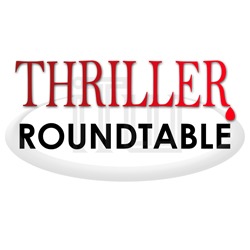

September 26 – October 2: What about language? How much credence do you give it? How important is it?
In On Writing, Stephen King tells the story of asking Amy Tan what’s the one question she’s never asked in a Q&A. She responded, “They never ask about the language.” So, we’re asking ITW Members Catriona McPherson, D. E. Johnson, Kelli Stanley and J. H. Bográn what about language? How much credence do you give it? What does it do for your story? Characters? Dialogue? Setting? The reader? How important is it?
~~~~~~~~~~~~~~~~~~~~
Catriona McPherson was born near Edinburgh in Scotland and educated at Edinburgh University, leaving with a PhD in linguistics. She is the author of six 1920s detective novels, most recently Dandy Gilver and The Proper Treatment of Bloodstains as well as two modern capers. Catriona recently moved to northern California, where she writes full-time when not tweeting, blogging and killing star thistles on twenty ramshackle acres.
D.E. (Dan) Johnson‘s literary debut, a historical mystery entitled The Detroit Electric Scheme, was published by St. Martin ‘s Minotaur in September 2010. The sequel, Motor City Shakedown, was published by Minotaur in September 2011. Dan is a history buff who has been writing fiction since childhood, but had to hit his midlife crisis to realize he should get serious about it. He and his wife, Shelly, have always encouraged their children to make their dreams a reality – and it finally occurred to him to do the same. After taking classes, reading everything about writing he could find, and writing for hours every day, he hit on the right subject and genre, and wrote a book that Loren Estleman calls “A LES MISERABLES for the American experience.”
J. H. Bográn, born and raised in Honduras, is the son of a journalist; he ironically prefers to write fiction rather than fact. José is the author of TREASURE HUNT, the first in the series of a professional thief that goes by the handle of The Falcon. Other works include short stories, contributor to The Big Thrill magazine, co-screenwriter for two TV serials and movie reviews for Honduran newspaper La Prensa.
- LAST GIRL MISSING with K.L. Murphy - July 25, 2024
- CHILD OF DUST with Yigal Zur - July 25, 2024
- THE RAVENWOOD CONSPIRACY with Michael Siverling - July 19, 2024

